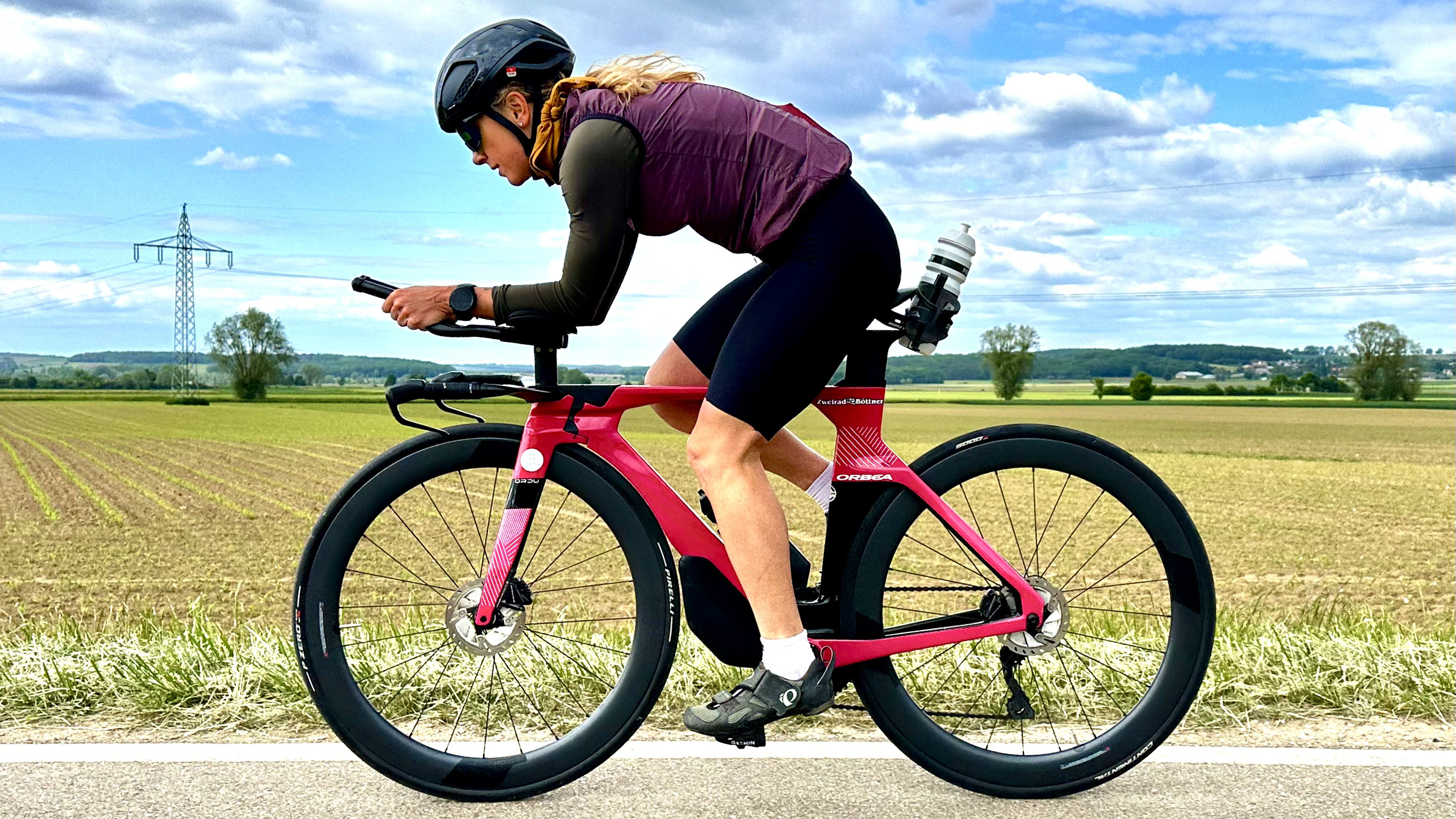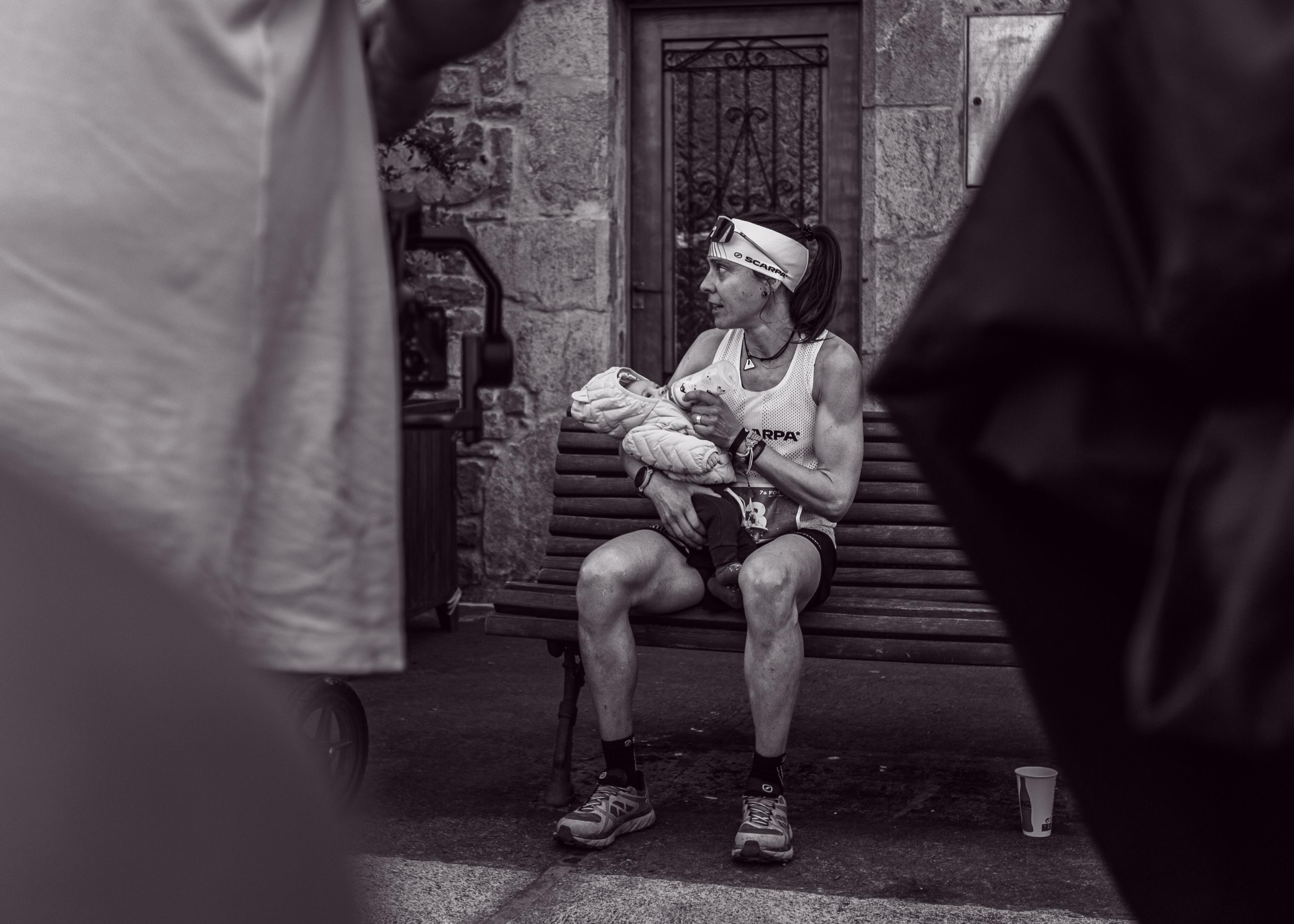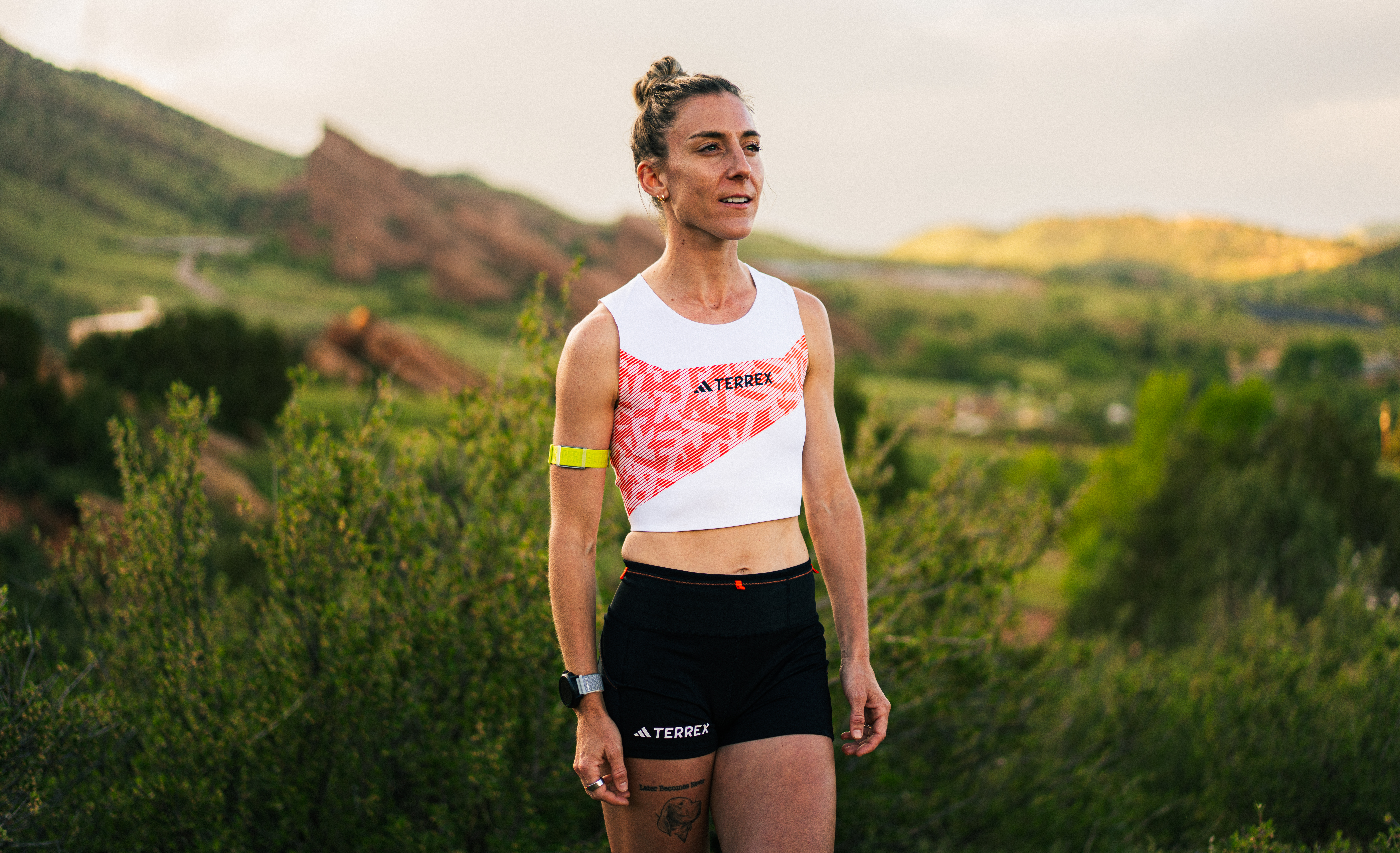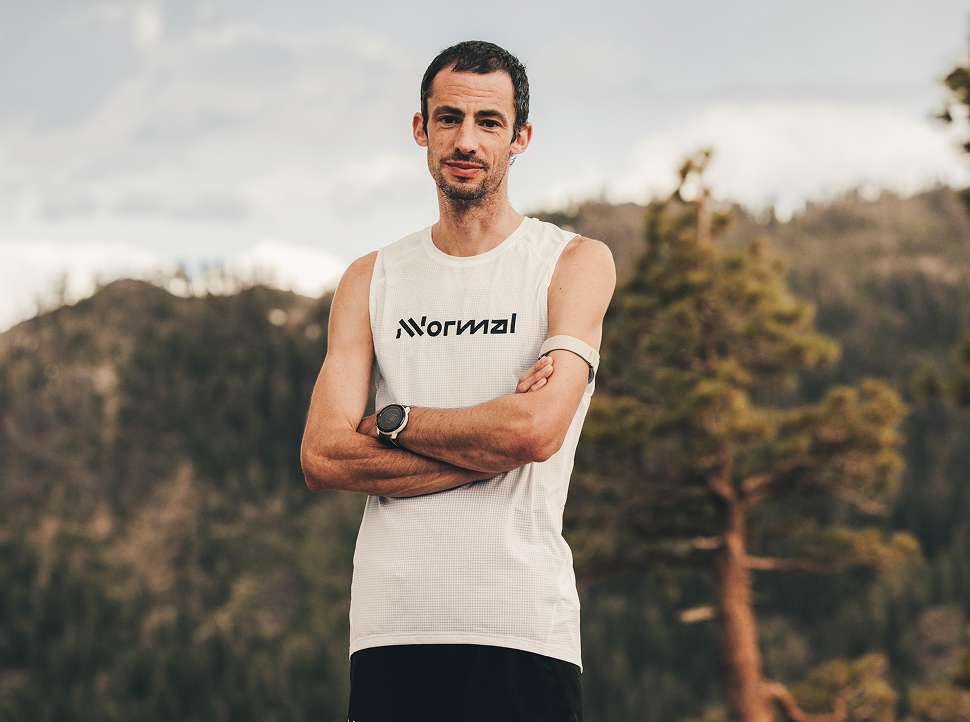Over the last 6 years, Emma Bates has steadily shown her dominance in US women's marathoning. In her 2018 debut, she won the US Marathon Championships at the California International Marathon. She would then go on to compete in multiple marathon majors and represent Team USA at the 2022 World Championships in Eugene, OR, setting new personal bests nearly every time she raced.
Last year, Emma placed 5th overall at the Boston Marathon running 2:22:10. COROS spoke to Emma then, and she indicated she felt she was in American record form, and was eager to go for it in Chicago. Unfortunately, injury impacted her race and the rest of her season, and as a result she missed out on making Team USA for Paris 2024.
Despite this setback, Emma was determined to come back stronger. Read below to learn how Emma overcame injury and built her mental resilience to set herself up for success at this year's Boston Marathon.
Missing Out On the 2024 US Olympic Trials
Emma began her specific 2023 Chicago Marathon training cycle near the end of July 2023, which gave her roughly 2 months of building mileage before tapering in early October for the race on October 8th.
"Going into Chicago, I was super pumped about trying to run a huge PR, maybe even potentially break the American Record. I was feeling great," she explains. She mentioned there was some minor plantar fasciitis that crept up the last few weeks of training, but it was your typical little nuisance that every runner experiences.
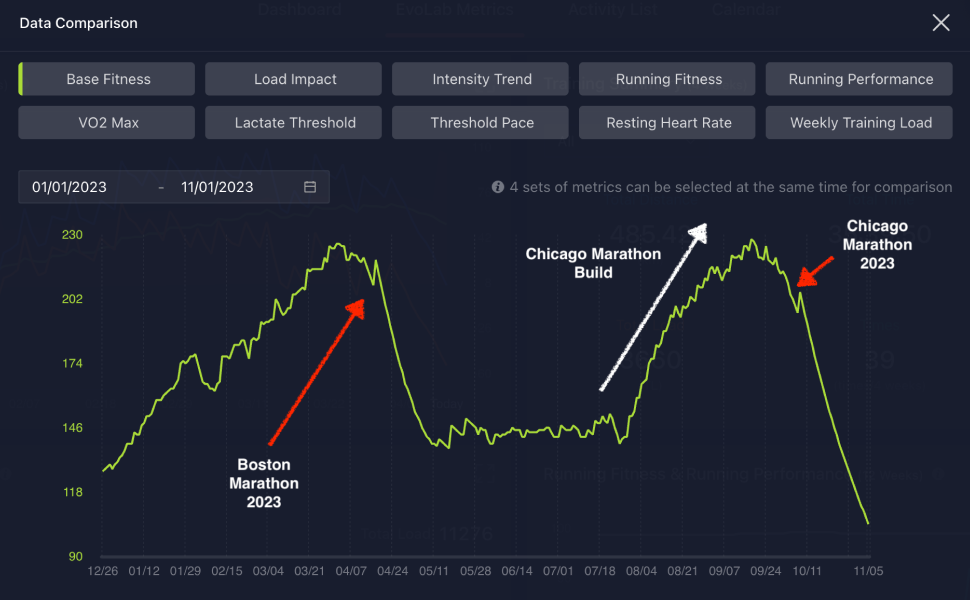
Emma's Base Fitness during her 2023 Chicago Marathon build.
COROS Education. Base Fitness refers to the 42-day rolling average of your Training Load, giving you insights on how much your body can sustain on a daily basis at this time.
As usual, Emma took 3 months before her 2023 Chicago Marathon build to maintain fitness in between races. She kept an average Base Fitness of 145 during this time, and peaked at 228 after her Chicago build at the end of September.
All signs pointed towards a phenomenal race for Emma. However, mid-race Emma stepped in a pothole and tripped, which she notes as the cause of her plantar tear. She ran the rest of the race in pain, still finishing in an incredibly impressive time of 2:25:04. She had to be taken away in a wheelchair. Her MRI confirmed a torn fascia and severe plantar fasciitis.
"I had never been seriously injured before in my career," says Emma. "It was devastating at the time."
Recovery, Cross-Training, and Setting New Goals
Following Chicago, Emma took 2 full weeks off. She then focused on cross-training activities that didn't cause her plantar any pain, primarily biking, for about 6 weeks. She focused on 3 main cycling workouts per week, including one longer bike ride to mimic what her body is usually going through during a long run from a physiological perspective. During the first week of January, Emma was able to run again and increase her volume progressively for two weeks before starting her specific Boston build.
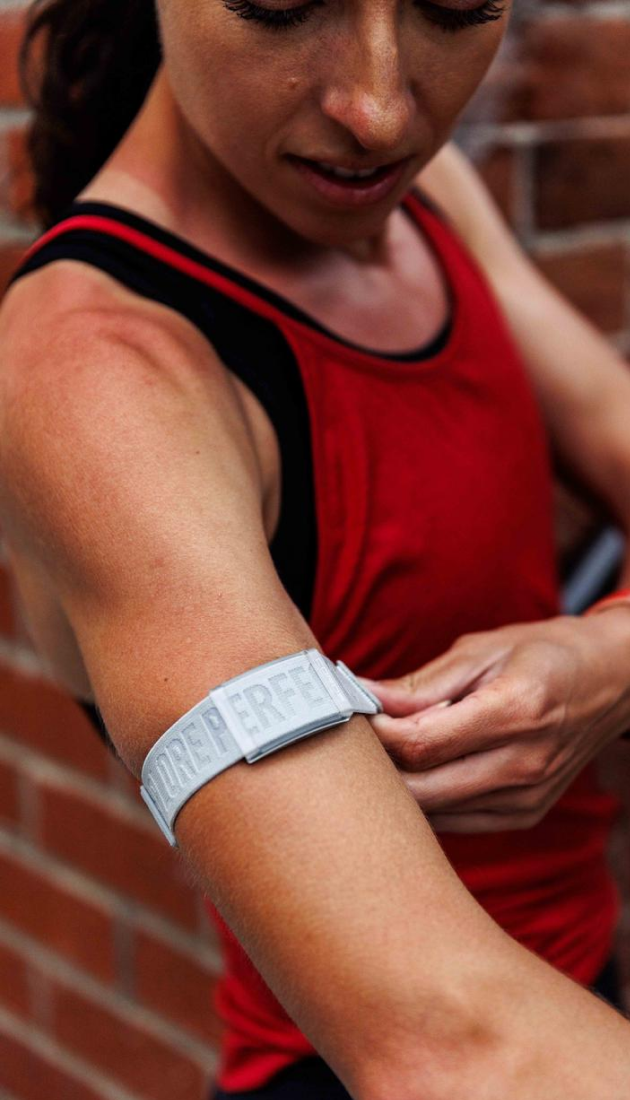
During my recovery after Chicago, I spent 24 hours per week cross-training on the bike. As much as I missed running during this time, I was super focused on making sure my cross-training was dialed and factored into my overall return back to running. My coach Joe loves using heart rate as a parameter for intensity when building back into full training. Once I gained enough strength in my foot, I started using the COROS heart rate monitor on the roads as well. It enables me to run within the appropriate heart rate zones (64-76% of max HR on easy days, 80-89% of max HR on workout days) to ensure I am not going too hard too soon.
I love this HRM because it’s extremely accurate and way more comfortable than a chest strap, and exactly what I needed as I monitored my fitness during my recovery.
Emma's Top 3 Tips for Recovery and Cross-Training
- Monitor resting heart rate and HRV: Emma checked her resting heart rate daily via COROS. She knew that if she was outside of her range, she might not be recovering properly or she might risk overtraining as she built back her fitness.
- Increase aerobic base via cross-training: Emma spent 24 hours a week cross-training during her recovery, with her "long run" equivalent being a 4-hour bike ride. With a strong emphasis on high-volume, low-intensity exercise, Emma was able to keep on improving her aerobic base while being injured.
- Manage the stress of life accordingly: After dealing with a terrible asbestos situation with the house she purchased, she felt drained and frustrated from the experience going into Chicago. While this was out of her control, she found ways to manage the stress and focus on solutions that kept her healthy and focused.
Emma Bates' Boston Marathon Training
With the Olympic Trials out of the question, Emma knew she could be back in full form by April for the Boston Marathon. If she was going to race a marathon, she wanted to race confidently and be ready to compete with the best.
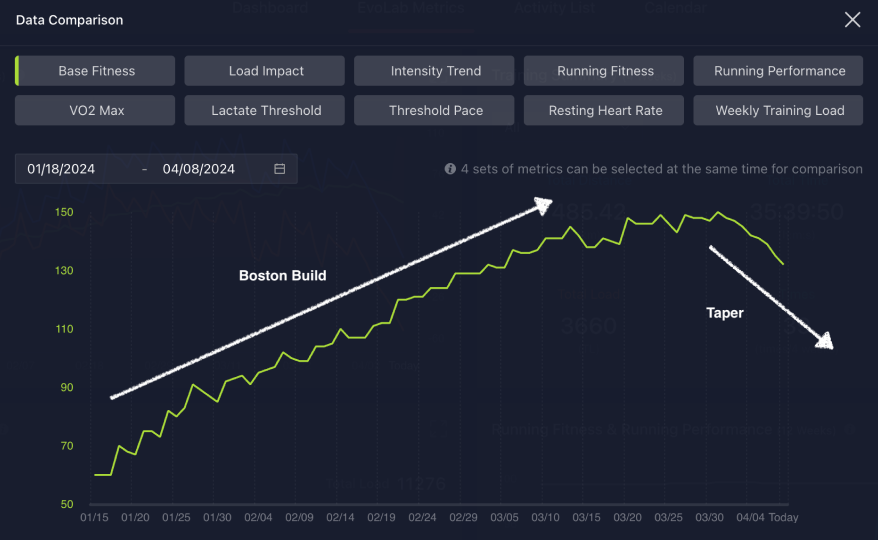
Emma's Base Fitness during her Boston Marathon build.
Thankfully, Emma was able to get back to full structured training 2 months prior to Boston Marathon with little to no pain from her injury. Her Base Fitness increased progressively from 60 to 150 in 10 weeks, which is an average increase of 9/week. While this may seem like a considerable increase, Emma took about 5 weeks to build her weekly mileage to what she is used to (>100miles). Even though she didn't feel any pain at this time, it was crucial to build fitness slowly to make sure her condition did not worsen in the process.
Emma Bates' Goals for The 128th Boston Marathon
April 15th, 2024 looks like a near-perfect day for racing with a low of 45 degrees in the morning, partly cloudy, and minimal wind. Anyone who has raced or cheered at Boston knows how unpredictable the weather can be, leading to breakthrough performances for some, and surprising race tactics.
While Emma doesn't have a specific time in mind, she says a win is "never out of the question" and she'll never count herself out. "It's more about having a good day and being able to appreciate what my body can do all over again," she says. "I'm going to play it safe like I did last year, key off everybody else and see where that puts me. It's a lot more fun to increase your pace than to slow down at the end of a marathon."
We're rooting for you, Emma!
/fit-in/0x18/coros-v2/images/common/logo_black.png)

